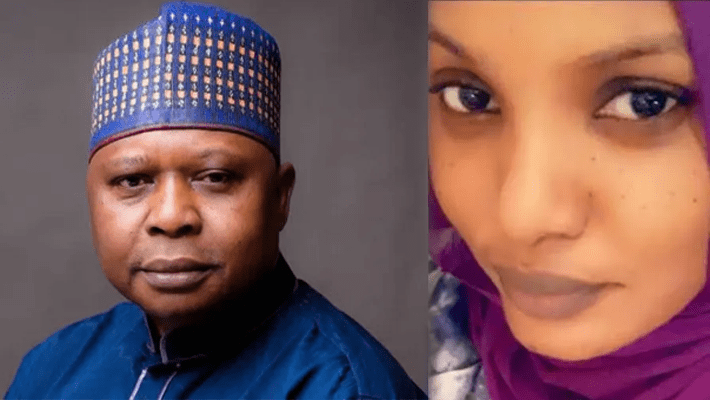A civil society organisation, Talk Initiative, has called for justice, accountability, and stronger protection for survivors of sexual and gender-based violence (SGBV) in Nigeria, citing the case of Hadiza Baffa, who has accused former Minister of Special Duties, Kabiru Tanimu Turaki (SAN), of rape and intimidation.
At a press conference in Abuja on Wednesday, the group’s Executive Assistant, Sefinatu Ahmed, said survivors of sexual abuse continue to face stigma, silence, and systemic neglect, while influential individuals often evade accountability.
“It is unfortunate that while women and girls remain the most affected, their experiences are underreported and under-addressed due to stigma,” Ahmed said.
The organisation expressed solidarity with Baffa and other survivors, urging the government, security agencies, traditional rulers, and civil society actors to ensure independent investigations and hold perpetrators accountable.
Baffa, a former student of Baze University, Abuja, has consistently accused Turaki of sexually assaulting her in 2014. She alleged that the then-minister raped her at a residence in Asokoro, Abuja.
Read also:
- Fintiri reaffirms commitment to infrastructure, workers’ welfare in Adamawa
- Cambridge Student on Stormzy Scholarship found dead after suspected overdose
- Tinubu’s reforms will transform Nigeria – Vice President Shettima assures business leaders
“He came around 1 a.m. in 2014. I don’t want to go into details because it’s not a fun thing to say. He raped me that night and asked me not to say anything. I was really scared to talk,” Baffa said.
She further claimed that Turaki fathered her child but has since used his political influence to intimidate her and deny responsibility.
“He has been using his power and status to threaten my life and frustrate me with my child,” she alleged.
Turaki, however, has strongly denied the allegations, describing them as politically motivated. In a statement issued by his media aide, Lawal Umar, the former minister said a court had already struck out Baffa’s suit against him after what he called “family interventions and an apology from her.”
According to him, he had initially accepted guardianship of Baffa at her mother’s request when she relocated to Abuja but later withdrew support over what he described as her “repeated involvement in financial scams.”
“Aggrieved by this decision, Hadiza Baffa petitioned the police, making spurious allegations against me, including claims of rape, unlawful termination of pregnancy, and threats to life,” Turaki stated.
Talk Initiative insisted that Hadiza’s case highlights the challenges of silencing, intimidation, and abuse of power faced by survivors in Nigeria, particularly when influential figures are involved.
“We are urging women’s rights groups, bar associations, and human rights defenders to view Hadiza’s case as a national emergency,” Ahmed said.
The group also decried the lack of adequate psychosocial support, legal aid, and referral services for survivors of sexual violence, warning that impunity only deepens trauma.
“Survivors are left in cycles of stigma and pain, while powerful individuals escape justice. We must act collectively to dismantle these barriers and ensure justice for survivors wherever they may be,” Ahmed added.






